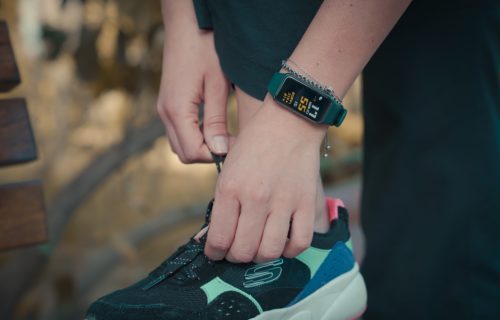DALLAS — Health management is arguably the easiest its ever been these days. Smartwatches and fitness trackers have skyrocketed in popularity in recent years. However, people who may need them most, such as those with or at greater risk of cardiovascular disease, seem to use them least according to new preliminary findings.
Wearable technology like fitness trackers have become a welcomed addition to people’s lives, especially by healthcare providers. They can help people monitor their heart rhythms, track exercise, and electrical activity, which in turn helps healthcare professionals offer better care for those at risk of health problems.
“We may be able to use artificial intelligence with health information from wearable devices to help people reduce their risk of heart disease,” says study lead author Lovedeep S. Dhingra, a postdoctoral research fellow in the Cardiovascular Data Science (CarDS) Lab at the Yale School of Medicine, in a statement.
To get a clearer idea of their use, researchers analyzed health information of 9,303 U.S. adults who participated in a national survey from 2019-2020. Study authors focused on participants with or at risk of heart disease such as those with hypertension, diabetes, and those who are smokers or obese. They were asked if they had used a wearable device for tracking physical activity or general health within the last 12 months, but not about specific device types. Fitness tracker use was then cross-referenced by age, gender, race and ethnicity, education level and income, as well as agreeability to share data with health care professionals.
Who is more likely to wear a fitness tracker?
Based on their findings, the authors report that those at risk of developing heart disease were less likely to wear fitness trackers. So far, it’s estimated that ~3.6 million people with cardiovascular disease and over 34 million people at risk of it used wearable devices. This means only 18% of those with the disease, and 26% of all at risk, wear them.
The researchers believe that there’s a lot of factors that go into this, with many having to do with access and education. Having a post-baccalaureate degree was linked with a 3.6-fold higher use of wearable devices than those with lower levels of education. Additionally, those making an annual household income of $50,000 or more were 4x more likely to use wearables than those with incomes less than $20,000.
A key limitation to the study is that data is self-reported, the team notes. In any event, it does highlight a greater need for addressing health inequities especially with chronic disease.
READ: Best Fitness Trackers, According To Experts
“We were surprised to find that people with cardiovascular disease were notably less likely than people without cardiovascular disease to use wearable devices, which suggests those who are most likely to benefit from these technologies appear to be less likely to use them,” says Dhingra. “We need to ensure that wearable devices reach the people who need them most, by improving equitable access and promoting wearables as health devices to help improve health and decrease health disparities.”
Previous research has shown that simply wearing a fitness trackers leads to a higher daily step count — even if the wearer never even looks at the device. Results like these are all the more reason that the people who could improve their health dramatically from using wearable technology should look into buying a device, even if they think it’s not worth it.
The study results were presented at the American Heart Association’s Scientific Sessions 2022.


Good to read the article about Those most at risk of heart disease use wearable fitness trackers the least.